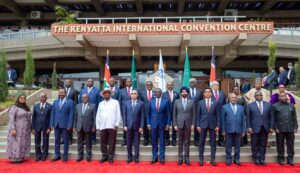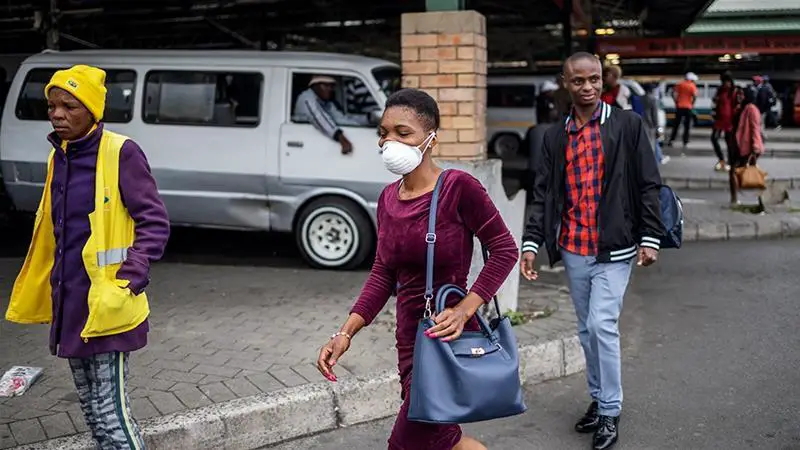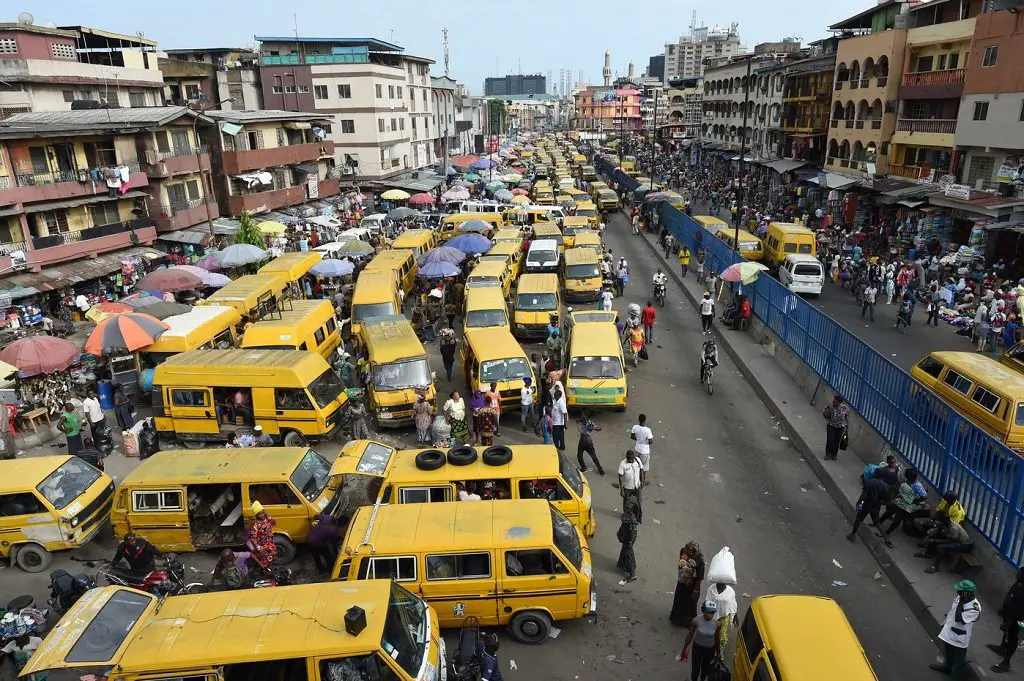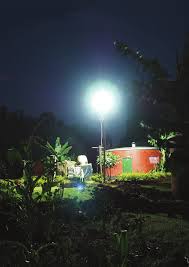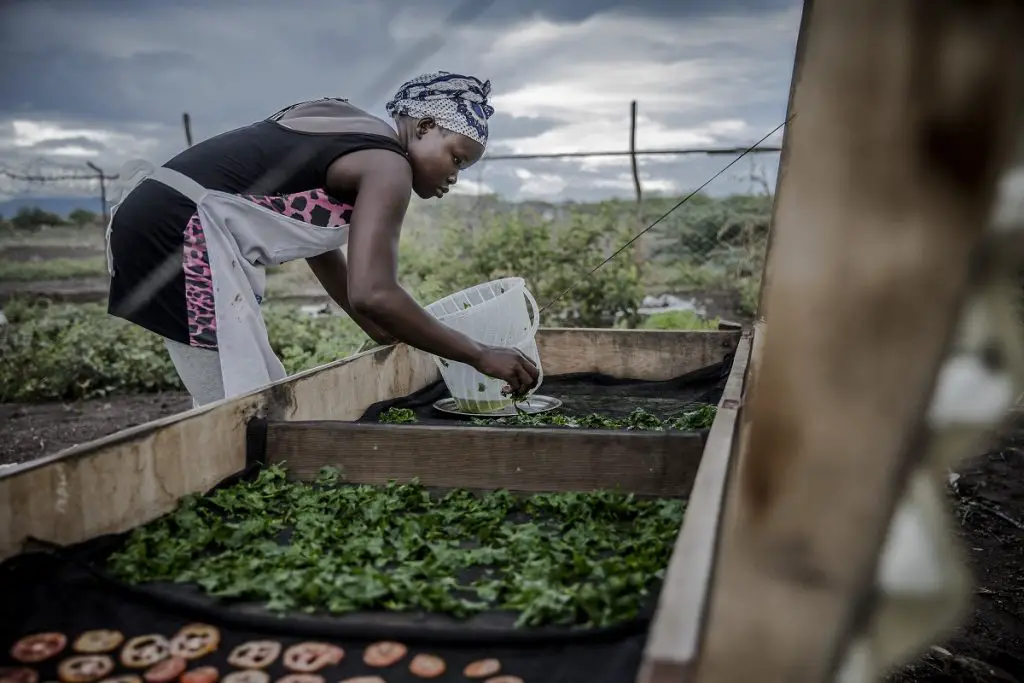- Saudi Islamic Development Bank to the rescue of Uganda with $295 million loan
- Reshaping the future of sustainable food systems in Africa
- African Heads of State call for tripling of World Bank’s concessional financing
- SpaceX offers Starlink kit at half price for first-time Kenyan customers
- Mobile Banking Reshaping the Gender Gap in Financial Inclusion
- Unleashing ideas: AIM Congress sets the stage for over 450 dialogue sessions
- Abu Dhabi welcomes over 330 partners for AIM Congress 2024
- Kenyan Farmers Receive $2M Boost from Africa Fertiliser Financing Mechanism
Month: March 2020
If there is anything that the spread of the COVID-19 (Coronavirus) pandemic across the world leading to partial or total lockdown in several countries has taught us, is that we need to be prepared financially for any eventualities today more than ever.
Barely two months ago, people across the world were planning and budgeting for the New Year without the realization that soon many would be losing employment or experiencing a cut of their normal income.
The global pandemic has brought the world to a standstill. This is an unprecedented time of trying to manage our lives behind closed doors, reaching out to those who need our help, and somehow remain afloat with the minimal income we have left.
Although the pandemic is just in its early stages in East Africa and most African countries, we should be learning from other countries like China and Italy. If we adapt to …
Over 46 African nations are feeling the coronavirus pandemic pinch, and much more scenarios are unveiled as days go.
Mandatory curfews are some of the measures being rolled out in East Africa (Kenya, and Uganda), Tanzania’s with hotels running low on customers and even considering a possible shut-down. The tourism industry is slowing down too.
However, the COVID-19 could also cause serious trouble, within economic lines for Africa, as the world economy hangs in the balance.
According to information from Bloomberg, the fear of the pandemic could trigger investors to exit markets.
Few emerging-market currencies have been spared as the spread of the coronavirus causes investors to dump riskier assets and the dollar to surge. But Africa has been hit harder than most — and the signs are there’s worse to come.
Kenya’s shilling, Angola’s kwanza and Zambia’s kwacha have all fallen to record lows this month. Ghana’s cedi and …
On March 13, 2020, the Economic Commission for Africa (ECA) warned that the covid-19 coronavirus crisis could seriously dent Africa’s already stagnant growth.
Oil-exporting nations could lose up to US$ 65 billion in revenues as crude oil prices continue to tumble. Having already strongly hit Africa’s major trading partner, China, covid-19 was inevitably impacting Africa’s trade.
ECA Executive Secretary, Vera Songwe, said: “Africa may lose half of its GDP with growth falling from 3.2 per cent to about 2 per cent due to a number of reasons which include the disruption of global supply chains.”
She added that the continent’s interconnectedness to affected economies of the European Union, China and the United States was causing ripple effects.
US$3-billion facility
Songwe said that Africa would need up to US$ 10.6 billion in unanticipated increases in health spending to curtail the virus from spreading, while on the other hand revenue losses could …
In the backdrop of Tanzania’s Central Bank announcing a stimulus package for commercial banks, loans advanced by banks have shot up significantly over the last year and the stimulus package is expected to sustain if not increase lending.
The Central Bank, the Bank of Tanzania (BoT) has this week released its Consolidated Zonal Economic Performance Report which shows lending by commercial banks have increased considerably in the last year.
The report shows that the highest amount of growth in bank loans was parallel to ongoing national infrastructure development works. The highest increase in loans was to companies operating in the central and south eastern zones owing to increased construction projects and to trading activities, respectively.
This would explain reduced lending in the commercial capital of Dar es Salaam. Lending in the bustling port city actually fell 1.6 percent compared to the same period last year. However, despite the percentage decrease, …
Tanzania’s Controller and Auditor General (CAG) has unveiled the country’s Local Government Authorities (LGA) have been involved in the embezzlement of millions of dollars issued to fund nonexistent projects.
Reporting to the country’s President John Magufuli, the CAG’s report indicated that LGA’s across the country have been corruptly siphoning tax payers money for individual gain. The 2018/19 report shows what can only be described as gross mismanagement of public funds.
In the report, Tanzania’s CAG Mr Charles Kichere also reported the gross misuse of funds in excess of USD 342.2 million by the country’s Local Government Authorities (LGA).
Worse still, while the LGAs collected more than USD 46.5 million in the said financial year, only 26.37bn/ was allocated to the rightfully designated development projects while the remaining 17.41bn/- was, according to the CAG report, misused.
Further still, another 10.39bn/- in local revenue that was collected by some 84 Local Government …
Mauritius based Tembo Power a limited liability company developing power generation projects across sub-Saharan Africa has reached out to South Africa based PE financier Metier for the construction of Kaptis project, a 14.7 MW run of a river hydropower project in Kenya.
This agreement now allows the partners to appoint lenders and prepare for financial closing, expected this year, and to start construction.
“Tembo Power is delighted to partner with Metier, a reputable and experienced infrastructure fund manager in Sub-Saharan Africa, supported by the main development finance institutions active in the renewable energy field, ” noted Raphael Khalifa, Founder, Tembo Power.
“Such agreement demonstrates the thoroughness of Tembo Power’s development approach, its compliance with the most stringent international standards, and paves the way for extended collaboration with Metier and other key players in the industry.”
Tembo Power started the development of Kaptis (14.7 MW), in Western Kenya, in 2013 after …
Africa is prone to hunger crises every so often when disasters strike and with the covid-19 coronavirus pandemic, it may not be different.
In East Africa, for instance, the pandemic hit when farmers are preparing their lands for planting making it a challenge for the region that is also battling a desert locust outbreak.
So, what does this mean to the region which has suffered the brunt of inadequate food supplies which keep dwindling by the day?
For starters, the UN-FAO has warned that the locust outbreak in East Africa is the worst to strike Ethiopia and Somalia for 25 years — for Kenya, in 70 years. Djibouti, Eritrea and Uganda have also been affected.
Coronavirus: African leaders stuck with neglected, outdated healthcare systems
“The situation is especially extremely alarming in East Africa, where 20 million people are already considered acutely food insecure. There, the swarms have laid eggs and …
Barely a week after Tanzania’s President John Magufuli ordered engineers to be sacked should a bridge (or any infrastructure) under their jurisdiction fails, the heavy toll of rains on infrastructure in the country has been estimated at 40bn/-
Its only the beginning of the first heavy rains season but infrastructures across the country are taken a heavy beating and succumbed. The damage caused is not only destroying bridges, rails and roads, it is also destroying careers as well.
The country’s President Dr. John Magufuli ordered sacking of any engineer where bridges and other infrastructures collapse, should they fail to respond accordingly. The president gave the order when visiting a damaged bridge that had rendered transportation null for over a fortnight on the outskirts of Dar es Salaam.
Responding to the ongoing rains and the resulting damage to infrastructure, Mr. Isack Kamwelwe, the country’s Minister for Works, Transport and Communication, told …
In a bid to keep the sector going, the Tanzanian government has announced plans to significantly lower hunting permit fees.
The relief comes shrouded by coronavirus threat which is the push behind the announced review of annual hunting blocks license fees.
Local media quoted the Deputy Minister for Natural Resources and Tourism, Mr Constantine Kanyasu, announcing the fee slash plans. According to the high government official, the planned fee cut is in response to requests by hunting companies who are complaining of reduced bookings owing to the global coronavirus threat.
“The Ministry of Natural Resources and Tourism will meet hunters again before the end of this month to inform them on the government’s action to rescue the subsector,” the Deputy Minister told media.
On behalf of the hunting companies, the Tanzania Hunting Operators Association (Tahoa) pointed out that there is still room to review the fees ahead of the hunting …
Food security has always been a matter of much concern across Africa, the threat has only been extenuated by the worsening coronavirus outbreak.
With the rest of the World tied up with response to the coronavirus in their own countries, scientists in Africa have to step up to the food security threat on the continent.
Up to the task are Tanzanian scientists who early this week, in the nick of time, announced a breakthrough in maize research that may very well answer the impending food security threat.
The Tanzania Agricultural Research Institute, announced its scientists have developed two genetically modified maize varieties that to a great extent, stand to solve the food security issue in the country and region at large.
First is a maize variety that is much higher in protein concentration than the regular maize types now been grown across the country. This variety will serve to give …


